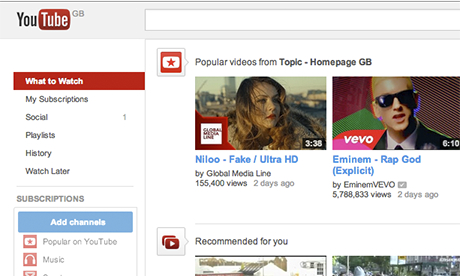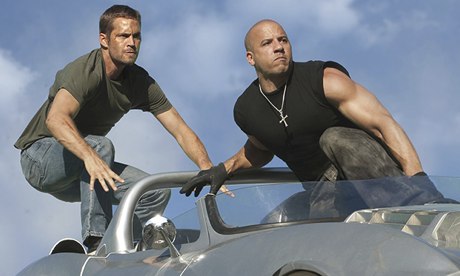Question: The development of new and digital media means the audience
is more powerful in terms of consumption and production. Discuss the arguments
for and against this view.
Audiences are said to have more power in some ways however
others believe that this statement is not true due to how the rich stay rich
and the powerful stay powerful. The concepts of Marxism and Pluralism associate
with power for audiences in terms of the consumption and production of new and
digital media. In terms of Marxism, audiences are said to be force fed
information and facts; believing what the rich and powerful say due to how the
media portrays them as role models. The other side to Marxism (the opposite of
this theory) is known as Pluralism which is the belief that people/audiences
have power and do control the media. This essay will explore these concepts in
correlation to new and digital media through the use of key media terms, quotes
from authorities figures and media theorists that link towards the overall
question.
Firstly the development of new and digital media allows
Pluralists to argue that audiences are empowered due to consumption and
production of media. They believe that audiences/viewers are in control of what
media organisations show and air because the media organisations want to give
people what they want in order to ensure that they are getting money. It’s
based around the money as they only give audiences what they want as that’s the
only way that they can ensure they get what they want. Furthermore the uses and
gratifications theory by Blumler and Katz relates to Pluralist ideologies due
to the fact that it argues that media companies give audiences a number of
reasons to view content such as diversion (otherwise known as escapism) or
socialism. Also audiences are gaining the information that they want to know
about as media companies accommodate to what the audience want. As this is the case Pluralists believe that
audiences control what media organisations show them and therefore believe that
audiences are in fact empowered. “Technological blossoming of the culture of
freedom, individual innovation and entrepreneurialism” Castells, 1996. This statement connotes the fact that
technology is becoming more advanced and more available and Castells therefore
believes that this is allowing ‘freedom of speech’.
Another factor which gives audiences more power than they
once had is the through web 2.0. Web 2.0 allows audiences to become producers
of media texts instead of just being consumers of media. It allows anyone with
a web connection to produce, publish and share their work easily without being
a professional. This means that there is no need for professionals or even
gatekeepers as it allows equal opportunities for anyone including smaller media
producers who want to be heard. Briggs and Burke described the internet as
“…The most important medium of the twentieth century” which is a Pluralist
point of view based on the internet due to the amount of user generated content
(UGC) available to everyone. An example of user generated content is like
YouTube as anyone is able to create and post videos on here as long as you have
a Google account. Furthermore viewers are able to like, comment and subscribe
to videos and YouTube channels. UGC websites such as YouTube create
opportunities for people to get their ideas out there in the world. An example
of someone who got famous due to YouTube is Justin Bieber. He started his
career by singing his songs on YouTube and is now one of the most famous young
artists in the world. User generated content does help create opportunities for
people to get heard and does equal the playing field.
Citizen journalism is a big factor of user generated content
as it is the idea that anyone is able to record and post articles on the web
where people are able to read their stories and beliefs without being a media
professional. An important piece of citizen journalism is the Rodney King
incident which was recorded by a passer-by on a camera phone. This was
revolutionary as it was a gateway to people being able to record anything and
use it as evidence.
A Marxist perspective in terms of audience empowerment
within new and digital media would be that the mass media conglomerates control
all of its consumers through forcing their own ideologies which become
hegemonic views and opinions. Paretos law agrees with this statement “a
minority of (media) producers always serve a majority of consumers”. This statement means that the 5 big media
companies; who own majority of organisations; get their message across to
majority of the population as most of the things people consume come from the
same ideological foundation company such as News Corp. Also, Marxists would
argue that the ‘information revolution’ has done little to nothing in terms of
benefits to society as its allowed piracy and copyright.
Marxists believe that big companies such as News Corp; who
own most organisations; just push their ideologies onto people/consumers and
they don’t give audiences power. In fact they believe that the rich media
companies allow audiences to believe that they are getting what they want and
do have the control and power but they are just led to believe that when it’s
not even true. “…it could be argued that the media merely offers the idea that
audiences can have their say, while, in practice, the ways in which
user-generated content is expressed and understood is barely different from
traditional media”. This statement connotes that the media exaggerates the
point about audiences have great power and control when in fact when the time
comes for them to do or say something, nothing happens. The quote is saying
that new and digital media is the same as traditional media in terms of
audience empowerment but people cannot see this. It’s therefore instigated the ‘dumbing down’
of the media so anyone can grasp the very basic concepts regardless of ability
or expertise.
Touching once more upon uses and gratifications by Blumler
and Katz, the theory is also about socialism and how people use what they see
on television or read on the internet; via a media organisations webpage; as a
way of making and talking to friends. It allows interaction. An example of this
is that if there is a popular show on television people seems to talk amongst
themselves about it over the next few day and even weeks. It’s therefore
accepted that if you are not part of the people who watch this you feel as if
society ignores you and the only way to socialise is to watch this too. This can be a Marxist point of view based on
the uses and gratifications theory because the audience don’t seem to control
this. Marxists believe that audiences are being led to believe they have the
power to control the media however they are just subliminally being brain
washed into watching it.
This can link in with the theory concept known as the
hypodermic needle due to the way the media injects information and forces
audiences to believe things which may not possibly be as true as they appear to
be. Marxists believe that the gatekeepers controlling most of the organisations
(monopolisation) are actually just injecting false information to viewer’s
minds in order to keep the rich and powerful in society on top and looked upon
as role models.
In conclusion this essay has been based on Marxism and
Pluralism in terms of audience empowerment and audiences influences in the media
arguing on one side that audiences have power due to them controlling what they
want to watch and read however on the other side that audiences are just made
to think that have the option to choose when in fact majority of everything
comes from one of the top 5 media conglomerates in the world.

